
Wikipedia began with its first edit on 15 January 2001, two days after the domain was registered by Jimmy Wales and Larry Sanger. Its technological and conceptual underpinnings predate this; the earliest known proposal for an online encyclopedia was made by Rick Gates in 1993, and the concept of a free-as-in-freedom online encyclopedia was proposed by Richard Stallman in 1998.

Zulu, or isiZulu as an endonym, is a Southern Bantu language of the Nguni branch spoken in Southern Africa. It is the language of the Zulu people, with about 12 million native speakers, who primarily inhabit the province of KwaZulu-Natal of South Africa. Zulu is the most widely spoken home language in South Africa, and it is understood by over 50% of its population. It became one of South Africa's 11 official languages in 1994.
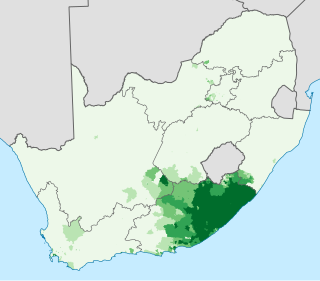
Xhosa also isiXhosa as an endonym, is a Nguni language and one of the official languages of South Africa and Zimbabwe. Xhosa is spoken as a first language by approximately 8.2 million people and by another 11 million as a second language in South Africa, mostly in Eastern Cape, Western Cape, Gauteng and Northern Cape. It has perhaps the heaviest functional load of click consonants in a Bantu language, with one count finding that 10% of basic vocabulary items contained a click.

Southern Ndebele, also known as Transvaal Ndebele or South Ndebele, is an African language belonging to the Nguni group of Bantu languages, spoken by the Ndebele people of South Africa.

The Swazi or siSwati language is a Bantu language of the Nguni group spoken in Eswatini and South Africa by the Swati people. The number of speakers is estimated to be in the region of 2.4 million. The language is taught in Eswatini and some South African schools in Mpumalanga, particularly former KaNgwane areas. Siswati is an official language of Eswatini, and is also one of the eleven official languages of South Africa.
The Nguni languages are a group of closely related Bantu languages spoken in southern Africa by the Nguni peoples. Nguni languages include Xhosa, Zulu, Ndebele, and Swati. The appellation "Nguni" derives from the Nguni cattle type. Ngoni is an older, or a shifted, variant.

Wikinews is a free-content news wiki and a project of the Wikimedia Foundation that works through collaborative journalism. Wikipedia cofounder Jimmy Wales has distinguished Wikinews from Wikipedia by saying, "On Wikinews, each story is to be written as a news story as opposed to an encyclopedia article." Wikinews's neutral point of view policy aims to distinguish it from other citizen journalism efforts such as Indymedia and OhmyNews. In contrast to most Wikimedia Foundation projects, Wikinews allows original work in the form of original reporting and interviews.

The Portuguese Wikipedia is the Portuguese language edition of Wikipedia, the free encyclopedia. It was started on 11 May 2001. The word "lusophone" refers to a country or people whose official language is Portuguese. In addition to being the sixth most accessed website in the world, Wikipedia is the fifteenth most accessed website in Brazil and the sixth most accessed in Portugal. As of July 2022, it is the 18th largest Wikipedia by article count, containing 1,093,878 articles.
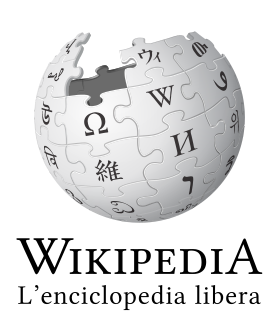
The Italian Wikipedia is the Italian-language edition of Wikipedia. This edition was created on May 11, 2001 and first edited on June 11, 2001. As of July 24, 2022, it has 1,763,977 articles and more than 2,275,633 registered accounts. It is the 9th-largest Wikipedia by the number of articles.

An assegai or assagai is a pole weapon used for throwing, usually a light spear or javelin made up of a wooden handle and an iron tip.
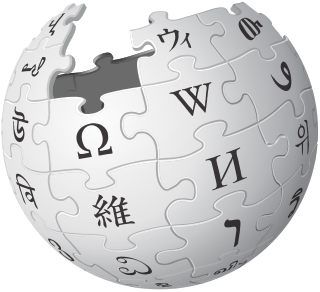
Wikipedia is a multilingual free online encyclopedia written and maintained by a community of volunteers through open collaboration and a wiki-based editing system. Individual contributors, also called editors, are known as Wikipedians. Wikipedia is the largest and most-read reference work in history. It is consistently one of the 10 most popular websites ranked by the Similarweb and former Alexa; as of 2022, Wikipedia was ranked the 7th most popular site. It is hosted by the Wikimedia Foundation, an American non-profit organization funded mainly through donations.
Nguni people are a group of closely related Bantu ethnic groups native to South Africa, with off-shoots in neighbouring countries in Southern Africa. Swazi people live in both South Africa and Eswatini, while Northern Ndebele people live in both South Africa and Zimbabwe.
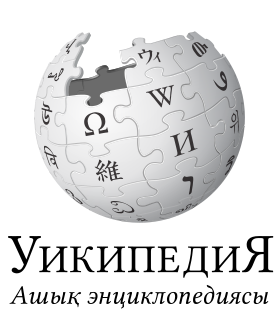
The Kazakh Wikipedia is the Kazakh language edition of the free online encyclopedia Wikipedia, founded on 2 June 2002.
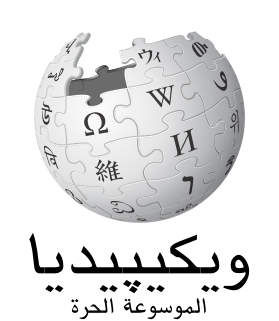
The Egyptian Arabic Wikipedia is the Egyptian Arabic version of Wikipedia, a free, open-content encyclopedia. This Wikipedia primarily acts as an alternative to the Arabic Wikipedia in favor of speakers of the Egyptian dialect. Until 2020, it was the only Wikipedia written in a localised dialect of Arabic. The second one is Moroccan Wikipedia, which was approved and created in July 2020.

The following outline is provided as an overview of and topical guide to South Africa:

The Spanish Wikipedia is a Spanish-language edition of Wikipedia, a free online encyclopedia. It has 1,791,000 articles. Started in May 2001, it reached 100,000 articles on March 8, 2006 and 1,000,000 articles on May 16, 2013. It is the 8th-largest Wikipedia as measured by the number of articles and has the 4th-most edits. It also ranks 12th in terms of depth among Wikipedias.
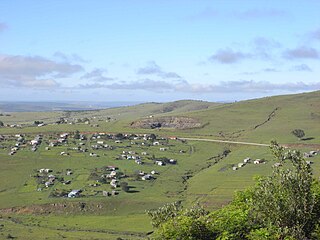
The Xhosa people, or Xhosa-speaking people are a Nguni ethnic group whose traditional homeland is primarily the Eastern Cape Province, South Africa. They are the second largest race group in Southern Africa and are native speakers of the IsiXhosa language.

The Xhosa Wikipedia is the Xhosa language edition of Wikipedia. It has 1,224 articles, which as of 24 July 2022 makes it the 272nd largest Wikipedia.

The Volapük Wikipedia is the Volapük-language edition of the free online encyclopedia Wikipedia. It was created in February 2003, but launched in January 2004. As of 27 July 2022, it is the 68th-largest Wikipedia as measured by the number of articles, with about 110,000 articles, and the second-largest Wikipedia in a constructed language after the Esperanto Wikipedia.

















